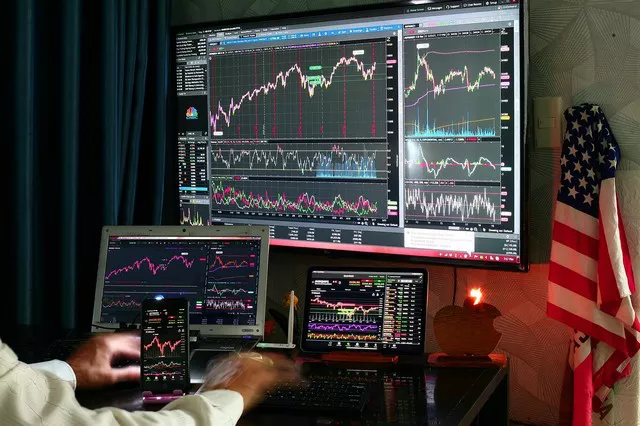Futures trading is a type of investment that allows investors to buy or sell an underlying asset at a specific price and time in the future. This guide will provide you with a comprehensive understanding of futures trading, including how it works, who participates in it, and the risks and rewards associated with this type of investment.
What are Futures Contracts?
Futures contracts are agreements between two parties to buy or sell an underlying asset on a specific date in the future. These contracts are traded on organized exchanges, where buyers and sellers can come together to trade these contracts.
Standardized Terms: Futures contracts have standardized terms, including the quantity of the underlying asset being traded, the quality of the asset, and the delivery date.
Cash vs. Physical Settlement: Futures contracts can be settled in cash or by physical delivery of the underlying asset. Most futures contracts are settled in cash, but some contracts, such as those for agricultural commodities and precious metals, may be settled through physical delivery.
Margin Requirements: Futures contracts require investors to post margin – essentially a deposit to cover potential losses. As prices fluctuate, the amount of margin required may also change.
How Do Futures Contracts Work?
When you buy a futures contract, you are committing to buying an underlying asset at a future date and at a specific price. The seller of the contract is also committing to delivering the asset at the agreed-upon date and price.
Price Fluctuations: The price of futures contracts can fluctuate based on a variety of factors, including supply and demand, changes in interest rates, and geopolitical events.
Speculation and Hedging: Futures contracts can be used for both speculative and hedging purposes. Speculators seek to profit from price movements in the futures market, while hedgers use futures contracts to protect against price fluctuations.
Roll Over or Close Out Positions: Investors can either roll over their positions by buying or selling a new futures contract with the same underlying asset, or they can close out their positions before the expiration date.
Who Trades Futures Contracts?
There are many different types of participants in the futures market, including individual traders, hedge funds, speculators, and commercial users such as farmers and manufacturers.
Individual Traders: Individual traders often trade futures contracts as part of a larger investment portfolio. They may use futures contracts to speculate on price movements or to hedge against potential losses.
Hedge Funds: Hedge funds are professional investment firms that trade futures contracts on behalf of their clients. They may use complex trading strategies to profit from price movements in the futures market.
Commercial Users: Commercial users, such as farmers and manufacturers, use futures contracts to protect themselves against price fluctuations in the commodities they produce or consume.
Risk and Reward of Futures Trading
While futures trading can be a profitable way to invest, there are also risks associated with this type of investment.
Volatility and Price Fluctuations: Prices in the futures market can be volatile and fluctuate rapidly based on a variety of factors. This can lead to significant gains or losses for investors.
Leverage and Margin Requirements: Futures trading requires investors to post margin, which can be significantly higher than the initial investment. This means that investors can potentially lose more money than they initially invested.
Regulatory and Geopolitical Risks: The futures market is subject to regulatory and geopolitical risks that can impact prices and investor sentiment.
Tips for Buying Futures Contracts
If you are interested in buying futures contracts, here are some tips to help you maximize your returns:
Understand the Market: Before investing in futures contracts, it’s important to understand the market you are trading in. This includes understanding the supply and demand factors that influence prices, as well as any regulatory or geopolitical issues that may impact the market.
Develop a Trading Plan: Having a solid trading plan is essential when buying futures contracts. This should include your investment goals, risk tolerance, and strategies for managing your positions.
Manage Your Risk: One of the biggest risks associated with futures trading is price volatility. To manage this risk, you may want to consider using stop-loss orders or other risk management tools.
Keep an Eye on Margins: When trading futures contracts, you will need to post margin – essentially a deposit to cover potential losses. As prices fluctuate, the amount of margin required may also change.
Stay Informed: Staying up-to-date on market developments is essential when buying futures contracts. This includes monitoring news releases, economic indicators, and other events that may impact the market.
Conclusion
Futures trading can be a lucrative way to invest, but it’s important to understand the risks and rewards associated with this type of investment. By following these tips, investors can maximize their returns and minimize their risks when buying futures contracts. Remember to develop a solid trading plan, manage your risk, stay informed about market developments, and keep an eye on margins. By doing so, you can increase your chances of success in the futures market.
It’s also important to note that futures trading is not suitable for everyone. This type of investment requires a high level of knowledge and experience, as well as a significant amount of capital. Before investing in futures contracts, it’s important to consult with a financial advisor and do your own research to determine if this type of investment is right for you.


